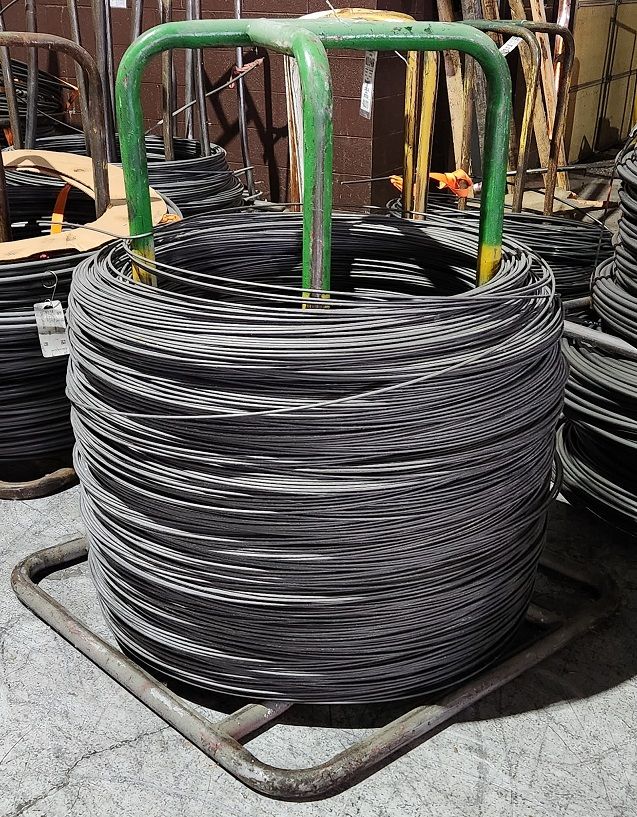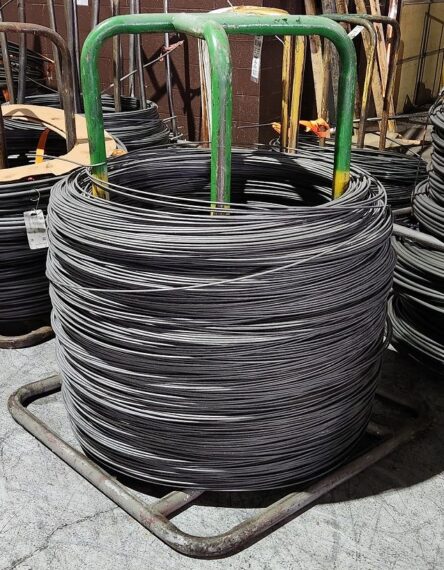Fasteners can be made of all sorts of materials, but three of the most common are all types of steel:
Let’s take a look at these types of steel, their properties, and how they may or may not suit your fastener application.
What to Consider When Comparing Steel Materials for Fasteners
Fastener material influences multiple aspects of the part’s performance, including:
- Weight
- Durability & longevity
- Tensile strength
- Corrosion resistance
- Brittleness
- Hardenability
- Malleability
- Reusability
- Ductility
- Temperature resistance
Not sure what some of these words mean? Head to our Fastener Terminology Guide.
Your choice of material can also affect fastener appearance (colors, finishes) and cost. Therefore, it’s important to be intentional about the type of steel you choose and why. Take performance, design, and budget factors into consideration. We’ll fill you in on what some of those are below.
Comparing Carbon vs. Alloy vs. Stainless Steel Fasteners
Carbon, alloy, and stainless steel all have their pros and cons when it comes to fastener manufacturing. None is really better or worse than the others — it just depends on which is best for which particular application.
Regardless, here are some of the main features, pros, and cons of these types of steel fasteners.
Carbon Steel Fasteners
Carbon steel is an alloy of iron and carbon. It generally has about 1.2-2.1% carbon — and as that carbon percentage rises, the steel becomes harder and stronger. However, it can also make it less ductile and more likely to crack under high stress.
There are three subtypes of carbon steel used for fasteners: low-carbon, medium-carbon, and high-carbon. Their distinguishing characteristics are exactly what you would expect: the amount of carbon. It’s part of what determines various carbon steel fastener grades.
Advantages of Carbon Steel Fasteners
- Easily machined — Carbon steel is an ideal material for machining, as its hardness can fluctuate based on carbon content.
- Naturally strong & hard — In its basic form, carbon steel is stronger than basic alloy steel. It can be used to make parts with lower strength requirements without the need to be heat treated.
- Relatively affordable — For the most part, carbon steel is one of the least expensive steel fastener materials.
Disadvantages of Carbon Steel Fasteners
- Lacks corrosion resistance — Carbon steel is prone to rust and corrosion, especially in hydraulic applications or moist environments. You may be able to combat this with the right fastener coating, however.
- Less ductility — When carbon percentage is high, carbon steel can lose ductility and be more prone to breakage under high stress.
- Less ideal for cold forming — Carbon steel doesn’t lend itself as well to cold forming manufacturing methods as some other types of steel.
Alloy Steel Fasteners
Alloy steel is carbon steel that contains other alloying elements, such as cobalt, chromium, alumnium, silicon, and more. The added elements improve the corrosion resistance and ductility of the material.
There are two subtypes of alloy steel: low-alloy and high-alloy. There are about 20 alloying elements that can be added to produce various grades of alloy steel, and the difference between “low” and “high” here depends on how many of them (and how much of each) are added.
Advantages of Alloy Steel Fasteners
- Ideal for cold forming — Alloy steel is suitable for cold forming manufacturing methods, which are advantageous in terms of reduced waste, fast production, added strength, and reduced energy usage.
- Corrosion resistant — Alloy steel is resistant to rust and corrosion, even in hydraulic applications and moist environments.
Disadvantages of Alloy Steel Fasteners
- Not as naturally strong — Without heat treatment, alloy steel isn’t as strong as carbon steel.
- Less affordable — Alloy steel is typically more expensive than carbon steel, and sometimes stainless steel as well.
Stainless Steel Fasteners
Stainless steel is a type of alloy steel with a maximum carbon content of 1.2% and minimum chromium content of 11%. It’s known for its shiny appearance and is used in a number of applications that require a sleek look — from household appliances to office furniture.
There are a couple of fastener grades that specify stainless steel as a material. The most common are 304 (commercial grade) and 316 (marine grade).
We don’t manufacture stainless steel fasteners here at Wilson-Garner, but we still thought it was important to mention them because they are widely used for low-stress applications.
Advantages of Stainless Steel Fasteners
- Stylish — Stainless steel offers a shiny, silver look. In instances when appearance matters, they’re a great solution that doesn’t require additional stylistic coatings.
- Corrosion resistant — Stainless steel is resistant to rust and corrosion, even in hydraulic applications and moist environments.
Disadvantages of Stainless Steel Fasteners
- Lacks strength and hardness — Stainless steel is not a very hard or strong fastener material. While it’s great for low-stress applications, a different option should be used if you need boosted durability.
RELATED: Need a specialty bolt, screw, or stud? Wilson-Garner can help.
Carbon vs. Alloy vs. Stainless Steel Fasteners: Which Is Best for My Application?
As stated above, there’s not an overall best or worst choice in steel fastener materials. Rather, it’s a matter of using the right material for the right application.
Here are some examples of when you may choose to use one over the other.
- Use carbon steel if…strength is key, machining is needed, cost is important, and/or corrosion resistance isn’t necessary.
- Use alloy steel if…cold forming is critical, corrosion resistance is needed, heat treating is an option, and/or you need to move a lot of material and have it form easily to make a part.
- Use stainless steel if…appearance matters, corrosion resistance is needed, and/or high strength isn’t necessary.
Get the Custom Carbon and Alloy Steel Fasteners You Need at Wilson-Garner
At Wilson-Garner, we’re your top choice for carbon and alloy steel fasteners — customized to meet your specifications and available in short-run quantities. If you have a custom part in mind, we’d be happy to help. Give us a call at (800) 656-2658 or contact us online for more information.

